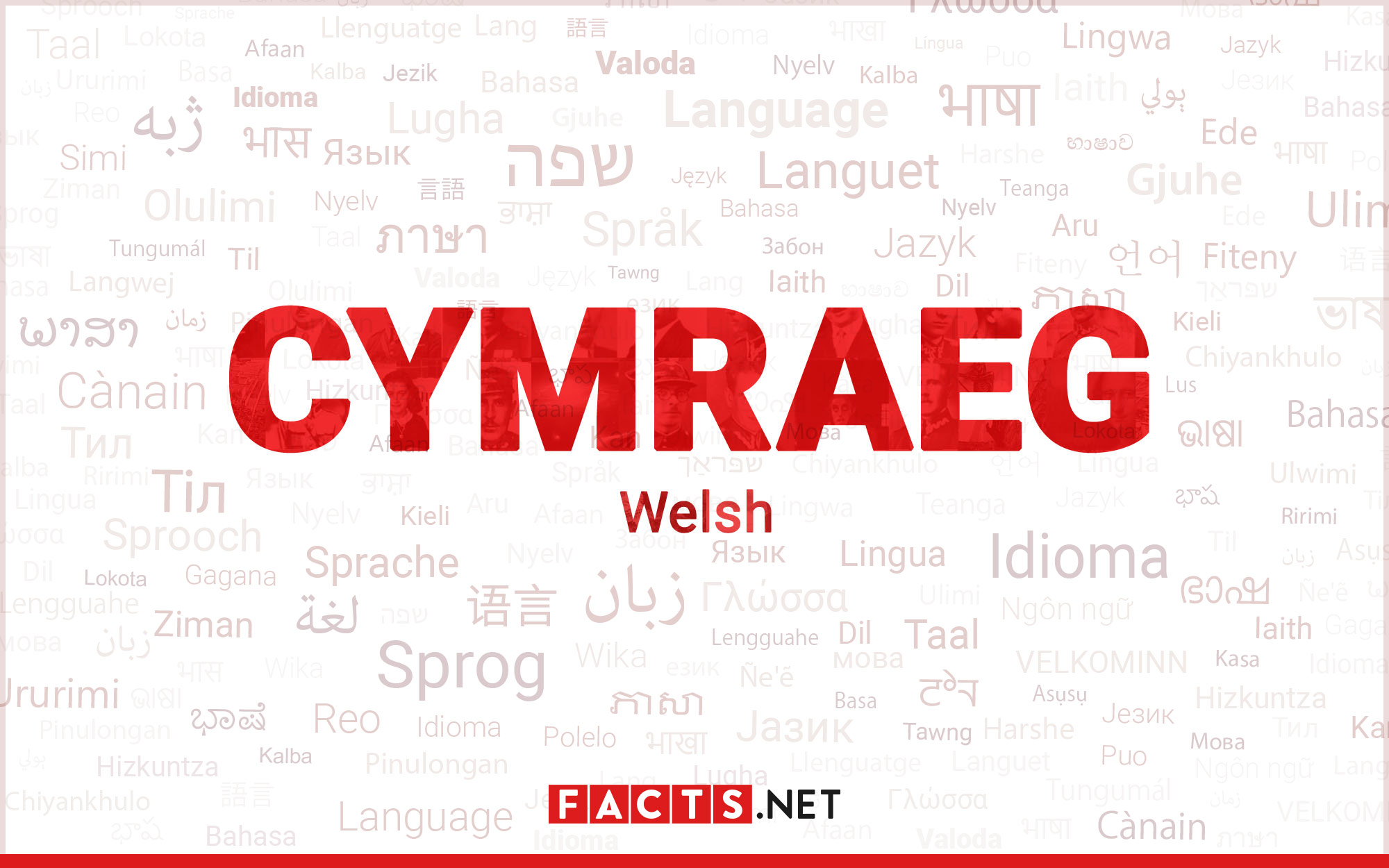
Welsh, also known as Cymraeg, is a fascinating language with a rich history and unique characteristics. Originating in Wales, this Celtic language has been spoken for centuries by the Welsh people, who take great pride in their linguistic heritage. While Welsh might not be as widely spoken as English or Spanish, it is a language worth exploring due to its distinctive features and cultural significance.
In this article, we will uncover 12 surprising facts about Welsh that will showcase its beauty, complexity, and resilience. From its ancient origins to its survival against all odds, Welsh has a story to tell that goes beyond mere words. So, buckle up and prepare to dive into the secrets and wonders of the Welsh language!
Key Takeaways:
- Welsh is one of the oldest languages in Europe, with a rich history dating back over 4,000 years. Its resilience and enduring presence reflect the cultural heritage of the Welsh people.
- Welsh language is a symbol of national pride and unity, fostering a sense of identity, belonging, and community among its speakers. It has influenced English vocabulary and holds a touch of magic through its mythical tales.
Welsh is one of the oldest languages in Europe.
With roots dating back over 4,000 years, Welsh has a rich and ancient history, making it one of the oldest continuously spoken languages in Europe. Its resilience and enduring presence are a testament to the cultural heritage of the Welsh people.
Welsh is an official language in Wales.
Unlike many regional languages, Welsh holds official status in Wales. This means that Welsh can be used in courts, government institutions, and public services, ensuring its preservation and recognition in the country.
It is one of the few Celtic languages still spoken today.
Belonging to the Celtic language family, Welsh is a living testament to the ancient Celtic culture that once thrived across Europe. Despite the decline of other Celtic languages, Welsh has managed to endure and flourish.
Welsh has a unique alphabet.
The Welsh alphabet consists of 28 letters, including unique characters such as “ll” and “ch.” These letters represent distinct sounds that are not commonly found in other languages, adding to the beauty and complexity of Welsh.
It has a strong poetic tradition.
Welsh culture is deeply rooted in poetry, and the language itself is known for its lyrical qualities. Welsh poets have been celebrated for centuries, composing intricate verses that capture the essence of the language and its rich heritage.
Welsh has a touch of magic.
Deeply inspired by the mythical tales of the Mabinogion, Welsh language and folklore are intertwined with enchanting stories of heroes, legends, and magical creatures. The language carries an air of mystery and wonder, captivating those who explore its myths and legends.
There are strong efforts to revitalize Welsh.
In recent years, there has been a surge in efforts to revitalize the Welsh language. Schools, cultural organizations, and government initiatives have played a crucial role in promoting and preserving Welsh, ensuring its survival for future generations.
Welsh has influenced English vocabulary.
Being one of the ancient languages of the British Isles, Welsh has left its mark on the English language. Many Welsh words and place-names have been integrated into English, enriching its vocabulary.
It is a language of community.
Welsh serves as a unifying force within the Welsh community. It fosters a sense of identity, pride, and belonging among Welsh speakers, creating a strong bond that transcends geographical boundaries.
Welsh names contain meaningful elements.
Welsh names often have deep significance, as they contain elements that represent traits, locations, or ancestral connections. Each name carries a story, adding depth to the Welsh language and reflecting the values and heritage of its speakers.
There are regional dialects within Welsh.
Like many languages, Welsh exhibits regional variation in dialects. Different parts of Wales have distinct pronunciations, vocabulary, and grammar, adding regional flavor and uniqueness to the language.
Welsh is a symbol of national pride.
The Welsh language is deeply intertwined with Welsh national identity. It represents the resilience, cultural heritage, and sense of community that is at the core of Welsh pride. The preservation and promotion of Welsh serve as a symbol of national unity and pride.
Conclusion
Welsh is a fascinating and unique language, with a rich history and cultural significance. These 12 surprising facts about Welsh showcase its linguistic beauty and the importance of preserving and celebrating this ancient language. From its Celtic roots to its influence on English, Welsh is a language that deserves recognition and appreciation. Whether you’re a language enthusiast or simply curious about different cultures, exploring the world of Welsh will undoubtedly broaden your horizons.
FAQs
Q: How old is the Welsh language?
A: Welsh is one of the oldest living languages in Europe, dating back over 1,500 years.
Q: Is Welsh a difficult language to learn?
A: Like any language, Welsh presents its challenges, but with dedication and practice, it can be mastered.
Q: How many speakers of Welsh are there?
A: Approximately 700,000 people speak Welsh, mainly in Wales and some regions of England.
Q: Are there different dialects of Welsh?
A: Yes, there are several dialects of Welsh, including North Welsh, South Welsh, and Mid Welsh, each with its own distinct features.
Q: What influence has Welsh had on English?
A: Welsh has influenced English vocabulary, with words such as “corgi,” “flannel,” and “crumpet” having Welsh origins.
Q: Can I find resources to learn Welsh online?
A: Yes, there are numerous online resources, courses, and apps available to help you learn Welsh.
Q: Is Welsh still used in daily life in Wales?
A: Yes, Welsh is still used in various aspects of daily life in Wales, including education, media, and government.
Q: Are there any similarities between Welsh and other Celtic languages?
A: Yes, Welsh shares similarities with other Celtic languages such as Irish, Scottish Gaelic, and Breton.
Q: Are there any famous Welsh authors or poets?
A: Yes, notable Welsh authors and poets include Dylan Thomas, Roald Dahl, and R.S. Thomas.
Q: Can I visit places where Welsh is spoken outside of Wales?
A: Yes, Welsh is spoken by some communities in Patagonia, Argentina, and a few pockets in the United States and Canada.
Q: Is Welsh taught in schools in Wales?
A: Yes, Welsh is a mandatory subject in Welsh schools, promoting the preservation and continuation of the language.
Q: Can I take part in Welsh cultural events and festivals?
A: Absolutely! Welsh cultural events and festivals are celebrated worldwide, providing a chance to immerse yourself in Welsh traditions and language.
Welsh, a captivating Celtic language, continues to thrive through community efforts and cultural celebrations. Tafwyl Festival, a vibrant showcase of Welsh heritage, invites attendees to immerse themselves in the language's rich history and contemporary relevance. This annual event brings together music, art, food, and the spirit of Wales, creating an unforgettable experience for all who participate. Exploring the festival's many facets offers a unique opportunity to appreciate Welsh culture and understand the importance of preserving linguistic diversity in our globalized world.
Was this page helpful?
Our commitment to delivering trustworthy and engaging content is at the heart of what we do. Each fact on our site is contributed by real users like you, bringing a wealth of diverse insights and information. To ensure the highest standards of accuracy and reliability, our dedicated editors meticulously review each submission. This process guarantees that the facts we share are not only fascinating but also credible. Trust in our commitment to quality and authenticity as you explore and learn with us.


